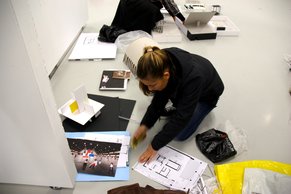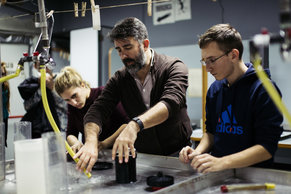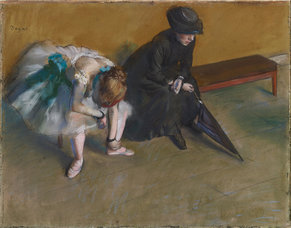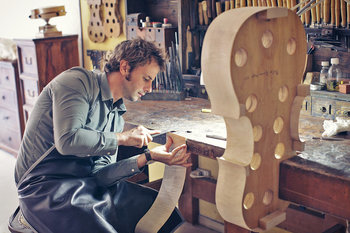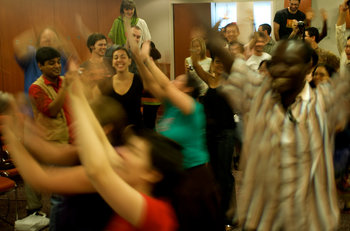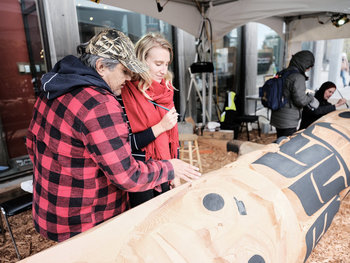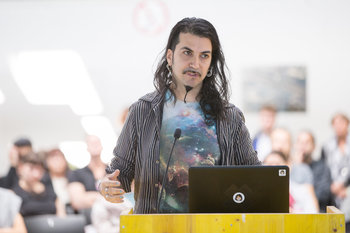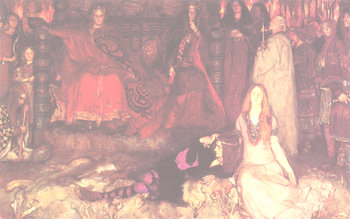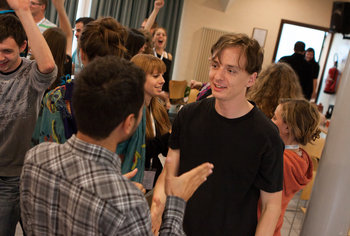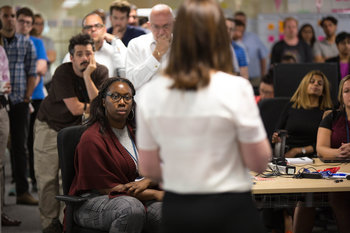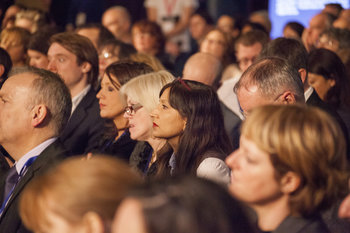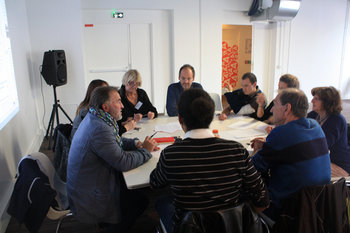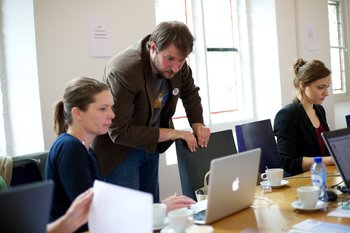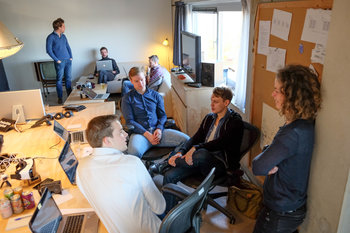
Worldview
A worldview is an individual's fundamental view of all things including their philosophy, culture, character and disposition. An individual with the same worldview as everyone around them may be less likely to see the non-obvious ideas required of creativity. In other words, the creative are slightly odd and independent thinkers. As such, societies and education systems that focus on conformity may destroy creative potential.Immersion
Nobody does it alone. If your worldview is too far from the norm such that you can't cooperate and participate in an education, profession and culture you will have no chance to offer value. For example, if you want to reinvent physics you need to be very familiar with the current state of the science and know other physicists.Angst
Creativity requires a will to change things that can be described as angst. For example, an artist who is dissatisfied with the mediocrity of the art world who desperately wants to express something through their art.Creativity of Constraints
Creativity of constraints is the theory that constraints such as a lack of funding are conductive to creativity. This can be used to explain how individuals working in their parent's basement sometimes outcompete in the long term against large firms with far more resources.Creative Tension
Creativity is typically resisted as it challenges assumptions that are defended by those who value the status quo. This requires risk taking and long periods of being misunderstood. As such, creativity isn't comfortable and convenient but rather is a state of tension.Imagination
Imagination is the ability to think in ways that differ from reality. This is the basis for creativity. Activities that nurture the imagination such as sleeping and playing are required in large quantities to develop a creative mind. For example, education systems that have young children study too many hours at the expense of play are likely damaging the innovative potential of their economy.Work Ethic
Creativity is often portrayed as being free and easy. It reality, it usually comes after a long period of concentrated effort. For example, moments of serendipity only occur after working on a problem for a long time.First Principles
It is impossible to be creative without a firm understanding of first principles. Other types of knowledge, particularly expert knowledge, may interfere with creativity.Preserving Ambiguity
Preserving ambiguity is the process of deferring assumptions until they absolutely need to be committed. For example, a team working on a self-driving car that doesn't assume the vehicle needs to be a "car" at all.Introspection
The creative are wrong a lot because they push beyond what is well established. This requires a talent known as introspection whereby you can catch your own mistakes. This is an essential element of creativity because when you do find a valuable idea the world may tell you that you're wrong. If you're pushing ideas against external resistance it is important to know that you're right without bias or motivated thinking.| Overview: Creative Spark | ||
Type | ||
Definition | An intangible talent or method that allows an individual to create significant non-obvious value at a point in time. | |
Related Concepts | ||



